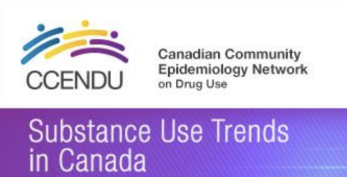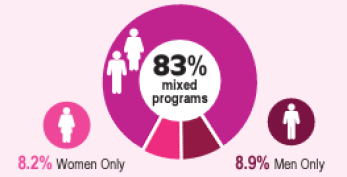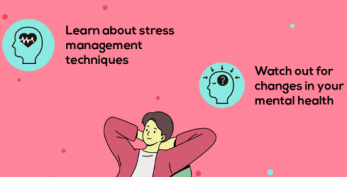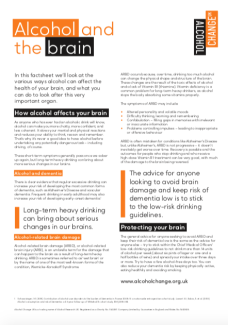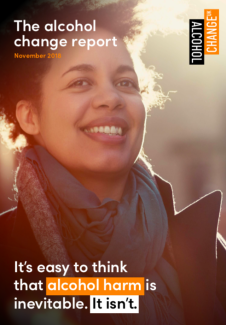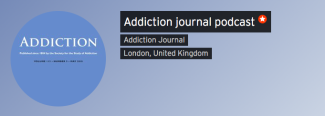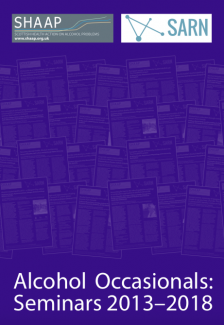Search
Treatment
Applying interventions designed to reduce and manage the symptoms of substance use disorders.
Fact Sheet: Alcohol and the Brain
Alcohol Change UK have released a fact sheet highlighting the various ways alcohol can affect the health of your brain as well as changes you can make in order to take care of this vital organ.
The Alcohol Change Report
Alcohol Change UK have released their latest report, which highlights the state of alcohol use in the UK and recommends changes that will reduce harm and promote a healthier society.
The report gives a clear overview of the cost and...
The Relationships Between Stimulant Use and Gambling Among Adolescents
Adolescence is a period of time where young people are more likely to seek independence and novel experiences, experiment with their expression and identity and have less regard for risk. Given the natural surge in sensation-seeking...
Relapse: The Role of Self-Regulation and Feelings of Disconnection
Highlights
- The study examines the views of patients with alcohol use disorder on relapse.
- Relapse was associated with the use of alcohol as a means of self-regulation combined with the sense of being disconnected from other people.
Th...
The Links Between Substance Use and Gambling in Schizophrenia
Highlights
- High rates of both problem and pathological gambling and substance use disorders have been reported in schizophrenia
- The research shows that problem and pathological gambling and substance use is linked with increased...
Effectiveness Bank Analysis: Therapist Empathy More Closely Related to Outcomes than Therapy Type
The more therapists empathically communicate their understanding of and compassion for clients, the better the outcomes - a relationship stronger than between outcomes and the type of therapy. Recommendations in this review commissioned by...
Addiction Journal Podcast - December 2018
The Journal of Addiction has published its latest podcast describing the highlights from the December issue of Addiction.
In addition to describing the key features that are presented in the journal, the podcast includes a selection of...
Alcohol Occasionals: Seminars 2013–2018
Almost a fifth more alcohol is sold per adult in Scotland than in England and Wales. It is believed 1 in 4 people drink at hazardous or harmful levels and in 2016 alone there were over 1,200 alcohol-related deaths in Scotland.
Scottish...
Effects of Long‐Term Alcohol Drinking on the Dopamine D2 Receptor: Gene Expression and Heteroreceptor Complexes in the Striatum in Rats
Abstract
Background
Reduced dopamine D2 receptor (D2R) ligand binding has repeatedly been demonstrated in the striatum of humans with alcohol use disorder (AUD). The attenuated D2R binding has been suggested to reflect a reduced D2R...
Effectiveness Bank Analysis: Patients Who Expect the Best Are More Likely to Get It
How much a patient expects treatment will help is not just an empty prediction but a force in making treatment help, is the strong possibility raised by a review commissioned by an American Psychological Association task force. The...
Effectiveness Bank Analysis: Authoritative Recommendations on Improving Group Therapy Outcomes
How can we make the most of group therapy, a common treatment/support format in substance use treatment? Recommendations do not get more authoritative than those advanced in this review commissioned by the American Psychological Association...
Sustained Opioid Antagonism Modulates Striatal Sensitivity to Baby Schema in Opioid Use Disorder
Highlights
- First fMRI study on the effects of naltrexone on social motivation in opioid-addicted patients.
- Extended release naltrexone modulates brain response to the level of cuteness in baby portraits.
- Reduction in craving for...
Duration of Therapy – Does It Matter?
Highlights
- Planned duration of therapy not associated with outcome in use of alcohol
- Actual attended sessions of therapy not associated with outcome in use of alcohol
- Frequency of research assessments significantly associated with use...
The Global Drug Survey for 2019
European Action for Employment in Recovery
A new European project has been developed to provide individuals in recovery from substance use in Scotland the opportunity to a part in a work and learning experience in another European country.
The European Action for Employment in...
Self‐Medication with Alcohol or Drugs for Mood and Anxiety Disorders
Substance use is one way that people deal with the difficult symptoms present in mood and anxiety disorders. As people become more reliant on the effects of the substances to relieve distress the use can develop into dependence. Self‐medica...
Comorbid Opioid Use is Undertreated among Forensic Patients with Schizophrenia
Abstract
Background
Substance use disorders are associated with poorer clinical outcomes in patients with schizophrenia. There is no specific treatment for amphetamine or cannabis use disorder, but methadone and buprenorphine are used as...
Older Adults in Treatment for Alcohol Use Disorders: Service Utilisation, Patient Characteristics and Treatment Outcomes
Abstract
Background
In western countries demographic changes are leading to an ageing society. Consequently, the number of older adults with alcohol use disorders (AUDs) will rise and the demand of treatment is likely to increase. However...
A great opportunity for professional treatment and prevention of substance use.
Work in the field of substance abuse is, at the same time, a great challenge and a great opportunity to grow, help people and make a difference in the world. The scholarship program Hubert h. Humphrey, is a great opportunity for...
Benzodiazepine Use Is High while Use Disorder Rates Are Low
Benzodiazepines, such as sedatives and sleeping aids, are a widely prescribed group of medicines designed for short-term treatment. Although most people manage benzodiazepines as prescribed, some individuals misuse the drugs and can develop...
Share the Knowledge: ISSUP members can post in the Knowledge Share – Sign in or become a member

